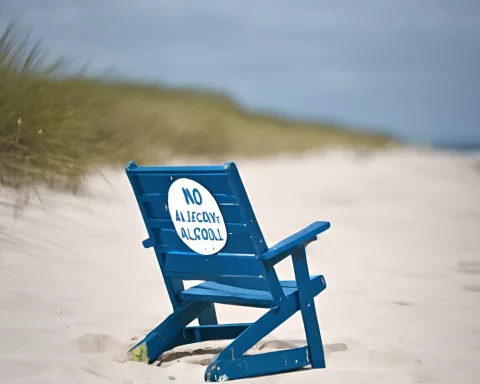In the quiet town of Saldanha Bay, a heartbreaking story unfolded when young Joshlin Smith vanished on February 19th. Her troubled family life, marked by her mother’s struggles with addiction, raised urgent questions about her safety. Natasha Andrews, who hoped to adopt Joshlin, shared her love and care for the girl, contrasting sharply with the chaos of Joshlin’s home. As the trial continues, it highlights not only the desperate need for better child protection but also the community’s role in ensuring that all children are safe and loved. This tale of loss and hope calls for everyone to step up and fight for vulnerable lives like Joshlin’s.
What happened to Joshlin Smith in Saldanha Bay?
Joshlin Smith disappeared on February 19th, sparking a significant investigation centered on her troubled family life. Key figures include Natasha Andrews, who sought to adopt Joshlin, and concerns surrounding her biological parents’ instability and substance abuse. The ongoing trial addresses these serious issues while highlighting broader societal challenges.
The Disappearance in Saldanha Bay
In the tranquil coastal town of Saldanha Bay, a gripping and sorrowful story has emerged, drawing intense focus from the Western Cape High Court. This narrative revolves around young Joshlin Smith, whose sudden disappearance on February 19th of the previous year has left an indelible mark on the local community. Central to this unfolding drama is Natasha Andrews, a woman who played a formative role in Joshlin’s early life and harbored an unfulfilled aspiration of adopting her.
Natasha Andrews, now 54 years old, took the witness stand to share the depth of her bond with Joshlin, a connection that began when the child was just a baby. Andrews’ testimony provided a vivid account of her nurturing care and the lengths she went to offer stability and love. “Joshlin was always clean when she was with me, and her hair would be combed,” Andrews recounted, highlighting not just her affection but also the stark contrast between Joshlin’s time with her and the child’s unstable home life.
Family Struggles and Unfulfilled Dreams
Joshlin’s biological parents, Raquel ‘Kelly’ Smith and Jose Emke, persistently opposed Andrews’ efforts to adopt the child. Despite numerous appeals and consultations with social workers, Andrews faced unwavering resistance. This opposition only deepened her concerns for Joshlin’s well-being. Andrews described a tumultuous home environment marked by frequent parental confrontations and Kelly’s battle with substance abuse. Driven by her conviction that she could provide Joshlin with a better life, Andrews even included the child in a funeral policy to secure her future.
The night of February 19th remains deeply etched in Andrews’ memory. Kelly arrived at her home late, only to return in the early hours, seeking photographs of Joshlin for the police. This unusual sequence of events alarmed Andrews, who immediately joined the search for the missing child. “I went to search for the child. Kelly was only part of the search on one occasion,” Andrews revealed, her voice laced with a mix of frustration and sorrow.
A Darker Turn
The story took a more sinister turn with the involvement of Kelly’s boyfriend, Jacquen ‘Boeta’ Appollis. Appollis, along with his associates Steveno van Rhyn and Lourentia Lombaard, became key figures in the ensuing investigation. The court proceedings unveiled that charges against Lombaard were dropped after she agreed to turn State witness, a decision likely influenced by the gravity of the evidence and the necessity of her testimony.
As the trial continues, the legal atmosphere remains tense. Judge Nathan Erasmus has mandated the continued detention of Van Rhyn and Appollis at Malmesbury Prison, while Kelly is held at Langebaan police station. This decision underscores the seriousness of the charges and the necessity of ensuring that the accused remain available throughout the trial.
Examining Broader Societal Issues
This case prompts reflection on broader societal issues. The story of Joshlin’s disappearance and the subsequent trial underscores critical themes of child welfare, community responsibility, and the intricate web of relationships that can both nurture and jeopardize a child’s well-being. Natasha Andrews’ persistent efforts to adopt Joshlin highlight a wider societal challenge: the complexities and bureaucratic hurdles within the adoption process. Her story is a poignant example of many individuals who seek to provide better futures for children but find their paths obstructed by systemic and personal obstacles.
Additionally, the case serves as a stark reminder of the pervasive impact of substance abuse and domestic instability on young lives. Kelly’s struggle with addiction and the chaotic home environment she maintained are, unfortunately, not unique. These issues reflect a broader social problem that demands comprehensive strategies, ranging from early intervention to sustained community support.
Cultural and Judicial Reflections
In a broader cultural context, the narrative of Joshlin and Andrews can be seen as part of a timeless story of guardianship and the fight for a child’s well-being. Literature and history are filled with examples of individuals stepping up to protect and nurture children in adverse circumstances. From protective figures in Charles Dickens’ novels to real-life heroes who emerge during crises, these stories resonate because they touch on fundamental human values of care, protection, and the pursuit of justice.
The ongoing trial also raises questions about the judiciary’s role in addressing such complex human stories. The court’s decisions, the testimonies heard, and the eventual verdict will not only determine the immediate legal outcomes but will also contribute to the ongoing discourse on child protection and justice.
A Call for Action and Reflection
As we follow the proceedings, it is crucial to acknowledge the multiple layers of this narrative. It is a story of loss and grief, failed systems, and personal shortcomings, but also of unyielding hope and dedication exemplified by individuals like Natasha Andrews. In her fight to adopt Joshlin, Andrews embodies a universal struggle for justice and compassion amidst adversity.
In conclusion, Joshlin Smith’s disappearance starkly illustrates the myriad challenges that can afflict a child’s life. It calls on society to reflect, act, and ensure that the most vulnerable among us receive the care and protection they deserve. The court’s deliberations have the potential to not only bring justice for Joshlin but also to set a precedent for future cases, emphasizing the essential role of community vigilance and judicial integrity in safeguarding our children.
In the years to come, the memory of Joshlin and the legal struggle surrounding her will likely inspire a renewed commitment to child welfare. It will serve as a reminder of the vital importance of both individual and collective action in fostering a safer, more nurturing world for every child.
FAQ: The Heart-Wrenching Tale of Joshlin Smith
What happened to Joshlin Smith in Saldanha Bay?
Joshlin Smith vanished on February 19th, which led to a significant investigation into her troubled family environment. Key figures in her story include Natasha Andrews, who sought to adopt Joshlin, and concerns stemming from her biological parents’ struggles with instability and addiction. The ongoing trial is addressing these serious issues while highlighting broader societal challenges related to child welfare.
Who is Natasha Andrews and what role did she play in Joshlin’s life?
Natasha Andrews is a 54-year-old woman who had a strong bond with Joshlin, having cared for her since she was a baby. Andrews aspired to adopt Joshlin but faced opposition from her biological parents. Her testimony in court emphasized her commitment to providing Joshlin with a loving and stable home, contrasting sharply with the chaotic environment created by Joshlin’s biological family.
What circumstances surrounded Joshlin’s disappearance?
Joshlin’s disappearance occurred after a night marked by unsettling events, including her mother, Kelly, arriving late and seeking photographs of Joshlin for the police. Natasha Andrews expressed concern about this behavior and immediately joined the search for Joshlin, which highlighted the instability and troubling dynamics within Joshlin’s home life.
Who are the individuals involved in the investigation and trial?
The investigation has centered around Kelly’s boyfriend, Jacquen ‘Boeta’ Appollis, and his associates, Steveno van Rhyn and Lourentia Lombaard. The court proceedings revealed that charges against Lombaard were dropped when she agreed to become a State witness. The ongoing trial has resulted in the detention of Appollis and Van Rhyn, highlighting the serious nature of the charges involved.
How does this case reflect broader societal issues?
The case of Joshlin Smith underscores critical themes around child welfare, community responsibility, and the complexity of relationships that can impact a child’s safety. It raises awareness about the issues of substance abuse and domestic instability, emphasizing the need for comprehensive strategies and community support to protect vulnerable children.
What does the future hold for child protection and community responsibility?
The ongoing trial and the story of Joshlin serve as a profound reminder of our collective responsibility to ensure the safety and well-being of all children. It calls for reflection and action, advocating for better child protection systems and greater community involvement to foster nurturing environments for vulnerable young lives. The outcome of the trial has the potential to influence future cases and emphasize the importance of judicial integrity in safeguarding children’s rights.












